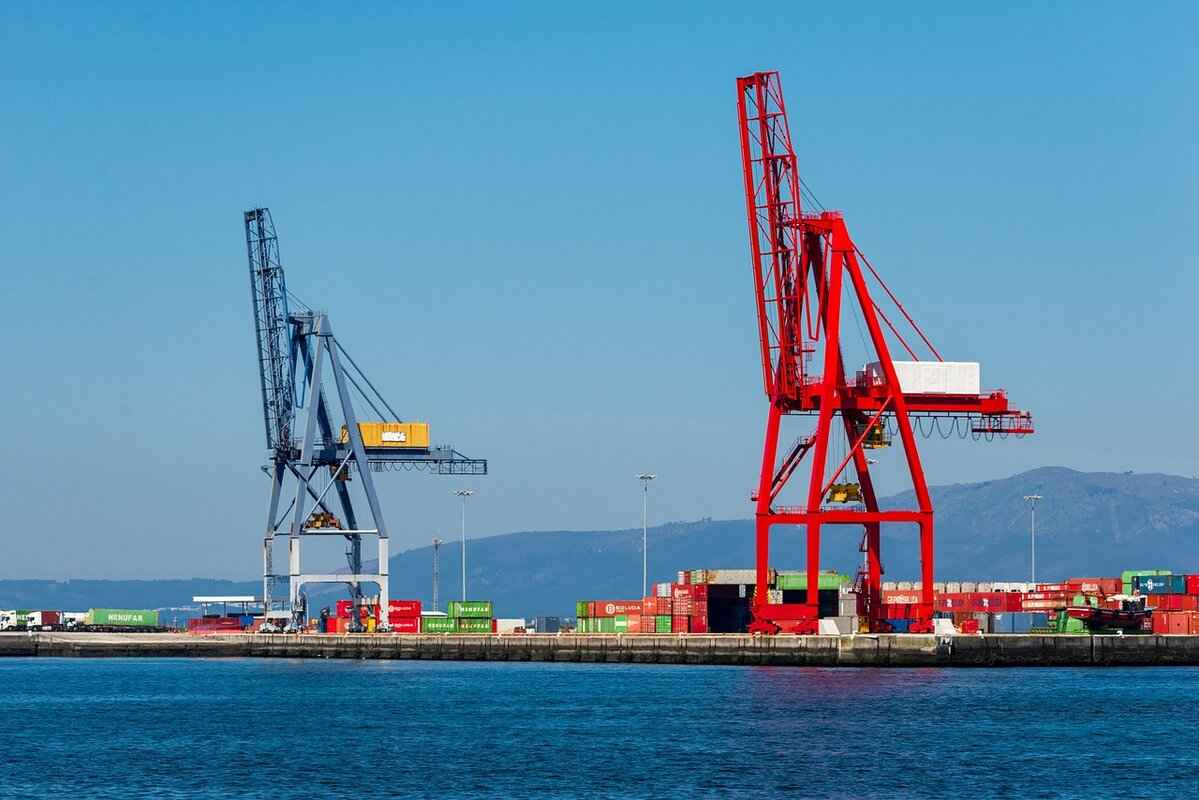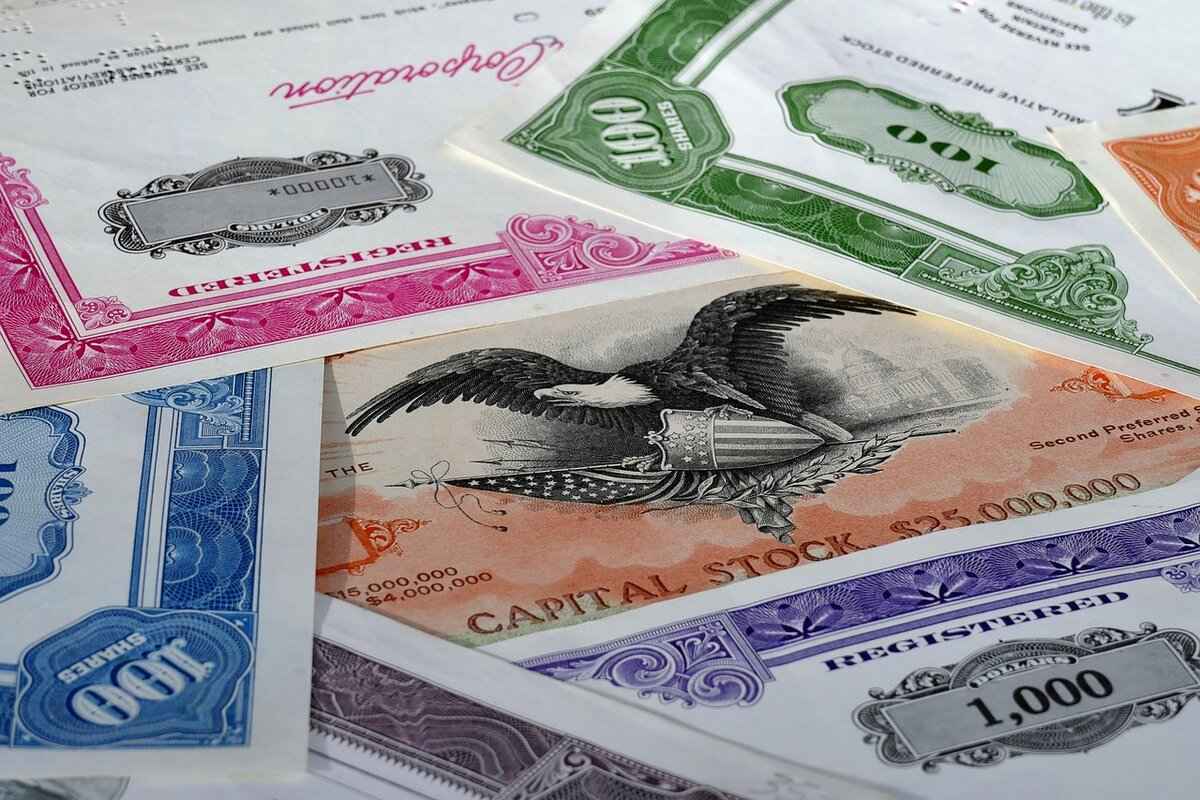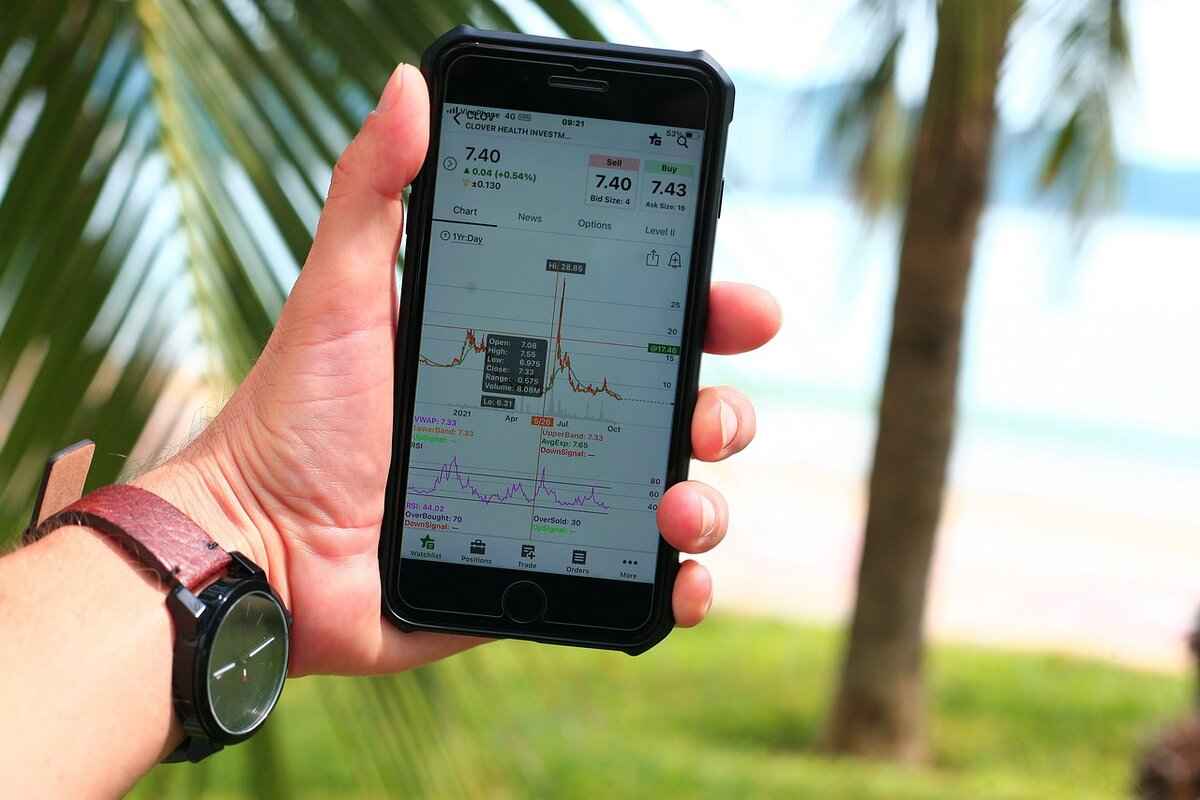This article explores how FintechZoom empowers traders with innovative tools and insights to navigate the stock market effectively, enhancing their trading strategies and decision-making capabilities.
Understanding FintechZoom’s Unique Offerings
FintechZoom provides a diverse range of services specifically designed for traders. Among its offerings are real-time market data, comprehensive analysis tools, and an extensive library of educational resources. These features are crafted to enhance trading proficiency and deepen market understanding, allowing traders to adapt swiftly to market changes.
Real-Time Market Data for Informed Decisions
Access to real-time market data is crucial for traders aiming to make informed decisions. FintechZoom delivers up-to-the-minute stock quotes, market trends, and essential statistics. This immediate access allows traders to react promptly to market fluctuations, significantly impacting their trading outcomes.
Importance of Timeliness in Trading
In trading, timing can make all the difference. Quick access to information can lead to better trading decisions and potentially greater profits. FintechZoom ensures that traders have the latest data at their fingertips, enabling them to capitalize on opportunities as they arise.
Advanced Analytical Tools for Traders
FintechZoom equips traders with advanced analytical tools that facilitate in-depth market analysis. These tools allow traders to identify trends and develop effective trading strategies based on solid data, enhancing their overall trading performance.
Charting and Technical Analysis Features
Traders can utilize various charting tools provided by FintechZoom. These features assist traders in visualizing market trends, making it easier to spot potential entry and exit points. The ability to analyze historical data through charts is invaluable for developing successful trading strategies.
Integrating Fundamental Analysis
Beyond technical analysis, FintechZoom offers resources for fundamental analysis. Traders can leverage insights from financial reports, economic indicators, and market news to make well-rounded decisions. This integration of both analytical approaches enhances the trader’s ability to navigate complex market environments.
Educational Resources for Continuous Learning
FintechZoom prioritizes trader education by providing a plethora of resources. These include articles, webinars, and tutorials aimed at improving trading skills and market knowledge. Continuous learning is essential for traders to stay competitive in the fast-paced stock market.
Webinars and Live Workshops
Participating in webinars and workshops can significantly enhance a trader’s knowledge. FintechZoom offers interactive learning opportunities that allow traders to engage with experts and ask questions in real-time, fostering a deeper understanding of trading concepts.
Comprehensive Articles and Guides
FintechZoom features a wide array of articles and guides covering various trading topics. These resources help traders stay informed about market trends and improve their strategies, making them better equipped to handle market challenges.
Community Support and Networking Opportunities
FintechZoom fosters a vibrant community of traders where individuals can share insights and experiences. This collaborative environment enhances the trading journey through networking and peer support, allowing traders to learn from one another.
Forums and Discussion Groups
Engaging in forums provides valuable insights and peer support. Traders can benefit from participating in discussions within the FintechZoom community, where they can exchange strategies and learn from the successes and failures of others.
Mentorship Programs
Mentorship can accelerate a trader’s learning curve. FintechZoom offers mentorship opportunities that help traders refine their skills through personalized guidance and support, ultimately leading to improved trading performance.
Mobile Accessibility for On-the-Go Trading
With the rise of mobile trading, FintechZoom provides mobile-friendly solutions that allow traders to access market data and tools anytime, anywhere. This ensures that traders never miss a trading opportunity, even when they are on the move.
Mobile App Features and Benefits
The FintechZoom mobile app includes various features tailored for traders, such as real-time alerts and customizable dashboards. These features enhance the user experience, making it easier for traders to manage their portfolios on the go.
Staying Updated with Alerts and Notifications
Traders can set up alerts for significant market movements. Notifications help traders stay informed about important changes in real-time, allowing them to make timely decisions and maximize their trading potential.
Integrating Social Trading Features
FintechZoom incorporates social trading features, enabling traders to follow and replicate the strategies of successful peers. This aspect of trading can be particularly beneficial for novice traders looking to learn from experienced individuals.
Following Expert Traders
By following expert traders, users can gain insights into effective trading strategies. This feature not only enhances a trader’s performance but also boosts their confidence in making informed decisions.
Community Insights and Performance Tracking
Tracking community performance can provide valuable insights into successful strategies. Traders can analyze the effectiveness of various approaches shared within the FintechZoom community, helping them refine their own trading tactics.
Security and User Privacy Measures
In the digital age, security is paramount. FintechZoom implements robust security measures to protect user data, ensuring a safe trading environment that fosters trust among its users.
Data Encryption Practices
Understanding data encryption is vital for user safety. FintechZoom employs advanced encryption techniques to safeguard sensitive information, ensuring that user privacy is maintained at all times.
Regulatory Compliance and User Protection
Compliance with financial regulations is crucial for any trading platform. FintechZoom adheres to strict regulations, ensuring a secure trading experience for its users and enhancing overall trust in the platform.

Understanding FintechZoom’s Unique Offerings
In the ever-evolving landscape of trading, having access to reliable tools and resources is essential for success. FintechZoom stands out as a comprehensive platform designed specifically for traders, providing an array of services that cater to both novice and experienced investors. This article delves into the unique offerings of FintechZoom, highlighting how they empower traders to enhance their proficiency and navigate the complexities of the stock market.
Comprehensive Real-Time Market Data
One of the cornerstone features of FintechZoom is its provision of real-time market data. Traders can access up-to-the-minute stock quotes, market trends, and essential statistics that are crucial for making informed trading decisions. Having this data at their fingertips allows traders to react swiftly to market changes, which can significantly impact their trading outcomes.
- Instant Access: Traders can monitor stock performance and market fluctuations in real-time, ensuring they are always informed.
- Market Trends: Understanding current market trends is vital; FintechZoom provides insights that help traders identify potential opportunities.
- Data Reliability: The platform sources its data from reputable financial institutions, ensuring accuracy and trustworthiness.
Advanced Analytical Tools
FintechZoom also equips traders with advanced analytical tools that facilitate in-depth market analysis. These tools enable users to identify trends, perform technical analysis, and develop effective trading strategies based on solid data. The platform offers a range of features, including:
- Charting Tools: Traders can utilize various charting options to visualize market trends and patterns, aiding in decision-making.
- Technical Indicators: FintechZoom provides a suite of technical indicators that help traders analyze price movements and forecast future trends.
Educational Resources for Continuous Learning
Recognizing the importance of education in trading, FintechZoom offers a plethora of educational resources. These include articles, webinars, and tutorials that aim to improve traders’ skills and market knowledge. Some key offerings include:
- Webinars and Workshops: Interactive learning sessions that provide valuable insights from industry experts.
- Comprehensive Guides: Detailed articles covering various trading topics, from beginner strategies to advanced trading techniques.
Community Support and Networking Opportunities
FintechZoom fosters a vibrant community where traders can connect, share insights, and collaborate. This aspect of the platform enhances the trading journey through networking and peer support. Key features include:
- Forums: Engaging in discussions allows traders to gain diverse perspectives and insights from fellow community members.
- Mentorship Programs: Opportunities for traders to learn from experienced mentors, accelerating their learning curve.
Mobile Accessibility for On-the-Go Trading
In today’s fast-paced world, mobile accessibility is crucial. FintechZoom offers mobile-friendly solutions that enable traders to access market data and tools anytime, anywhere. This ensures that traders never miss an opportunity, with features such as:
- Mobile App: A user-friendly mobile application that provides essential trading tools and real-time data.
- Alerts and Notifications: Traders can set up alerts for significant market movements, keeping them informed in real-time.
In conclusion, FintechZoom’s unique offerings provide traders with the necessary tools, resources, and community support to excel in the stock market. By combining real-time data, advanced analytical tools, educational resources, and mobile accessibility, FintechZoom empowers traders to enhance their strategies and make informed decisions.

Real-Time Market Data for Informed Decisions
In the fast-paced world of trading, having access to real-time market data is not just an advantage; it is a necessity. Traders rely on up-to-the-minute information to make quick decisions that can significantly impact their trading outcomes. FintechZoom understands this critical need and provides a robust platform that delivers timely stock quotes, market trends, and essential statistics. This capability empowers traders to act swiftly and confidently, capitalizing on market movements as they happen.
Why Timeliness Matters in Trading
The essence of trading lies in timing. A second can mean the difference between profit and loss. With real-time data, traders can respond to market changes instantaneously. For instance, if a stock suddenly spikes due to news, traders who are aware of this development can buy in before the price rises further. Conversely, those lacking timely information may miss out, resulting in missed opportunities and potential losses. Thus, the ability to access immediate data is invaluable in the trading landscape.
How FintechZoom Delivers Real-Time Data
FintechZoom sources its market data from reliable exchanges and financial institutions, ensuring that the information provided is accurate and current. The platform aggregates data from various sources, including stock exchanges, and applies sophisticated algorithms to present it in a user-friendly format. This approach not only enhances the reliability of the data but also allows traders to view comprehensive market insights at a glance.
Features of Real-Time Market Data
- Live Stock Quotes: Traders can view live stock prices that update in real-time, allowing for immediate decision-making.
- Market Trends: FintechZoom provides insights into market trends, helping traders identify potential opportunities based on current movements.
- Volume and Volatility Data: Understanding the volume of trades and volatility can help traders assess market sentiment and make informed choices.
The Impact of Real-Time Data on Trading Strategies
Access to real-time data allows traders to refine their strategies continuously. For example, day traders depend heavily on real-time data to execute their trades within the same trading day. They analyze minute-by-minute fluctuations and adjust their strategies accordingly. On the other hand, long-term investors can also benefit from real-time data, as it helps them make informed decisions about when to enter or exit a position based on market conditions.
Conclusion
In conclusion, real-time market data is a cornerstone of successful trading. FintechZoom’s commitment to providing accurate and timely information equips traders with the necessary tools to navigate the complexities of the stock market. By leveraging this data, traders can enhance their decision-making processes, optimize their trading strategies, and ultimately improve their chances of achieving profitable outcomes.
Importance of Timeliness in Trading
In the fast-paced world of trading, the importance of timing cannot be overstated. Successful traders understand that the right information at the right moment can make a significant difference in their trading outcomes. This section delves into how timely information can enhance trading decisions and potentially lead to higher profits.
Timeliness is a critical factor in trading as financial markets can change rapidly. A delay in receiving information can result in missed opportunities or losses. Traders who act on outdated data may find themselves at a disadvantage, as market conditions can shift in the blink of an eye. Having access to real-time data allows traders to make informed decisions swiftly, capitalizing on market movements as they happen.
Access to real-time market data is essential for traders. Platforms like FintechZoom provide up-to-the-minute stock quotes, market trends, and critical statistics. This immediacy enables traders to react promptly to market fluctuations, ensuring they do not miss out on lucrative trading opportunities. For instance, an unexpected earnings report can cause a stock’s price to spike or plummet, and traders who are informed immediately can make quick decisions to buy or sell.
In addition to real-time data, news alerts play a vital role in trading. Traders who subscribe to news feeds or set up alerts for specific stocks or market events can stay ahead of the curve. For example, news regarding regulatory changes, economic indicators, or geopolitical events can significantly impact market sentiment. Being among the first to receive such news can provide a competitive edge, allowing traders to adjust their strategies accordingly.
Advancements in technology have made it easier than ever for traders to access timely information. Mobile trading applications, for instance, allow users to monitor their investments and receive alerts on the go. This convenience means that traders can respond to market changes no matter where they are, ensuring they never miss a critical moment. Furthermore, automated trading systems can execute trades based on predefined criteria, taking advantage of market movements even when the trader is not actively monitoring the market.
Timely information not only aids in immediate trading decisions but also enhances long-term strategies. By analyzing market trends as they develop, traders can identify patterns and adjust their strategies accordingly. For example, recognizing a trend in a particular sector can lead to strategic investments that capitalize on future growth. The ability to analyze data quickly and accurately is a hallmark of successful trading.
In conclusion, the cannot be emphasized enough. Traders who leverage real-time data, news alerts, and technological advancements are better positioned to make informed decisions that can lead to greater profitability. As the market continues to evolve, those who prioritize timely information will undoubtedly gain a competitive edge, making it a crucial aspect of successful trading strategies.
Data Sources and Reliability
Understanding where FintechZoom sources its market data is crucial for traders seeking reliable and accurate information. In the fast-paced world of trading, the integrity of data can significantly impact decision-making processes. FintechZoom employs a multifaceted approach to data sourcing, ensuring that users receive timely and precise market insights.
FintechZoom aggregates data from a variety of reputable sources, including major financial institutions, stock exchanges, and market analysts. This diverse range of sources helps to mitigate the risk of inaccuracies that can arise from relying on a single provider. The platform utilizes advanced algorithms and data aggregation techniques to compile information efficiently, allowing traders to access real-time updates that reflect the current market conditions.
One of the key aspects of FintechZoom’s reliability is its commitment to data validation. The platform employs rigorous checks and balances to verify the accuracy of the information it provides. This includes cross-referencing data against multiple sources to ensure consistency and reliability. Additionally, FintechZoom collaborates with industry experts and analysts who continuously monitor market trends and provide insights that enhance the platform’s data offerings.
Moreover, FintechZoom prioritizes user feedback as a vital component in its data sourcing strategy. By actively engaging with its user community, the platform can identify potential issues and areas for improvement. This feedback loop not only helps to refine the accuracy of the data but also fosters a sense of trust among users, who feel their concerns are being addressed.
Another important factor contributing to the reliability of FintechZoom’s data is its adherence to regulatory standards. The platform complies with various financial regulations, ensuring that the data it provides is not only accurate but also ethically sourced. This compliance is essential for maintaining user confidence, especially in a market where misinformation can lead to significant financial losses.
In addition to its robust data sourcing and validation processes, FintechZoom also invests in cutting-edge technology to enhance data delivery. The platform’s user-friendly interface allows traders to quickly access the information they need, whether it’s stock quotes, market trends, or analytical tools. This accessibility is crucial for making informed decisions in a timely manner.
Ultimately, the combination of diverse data sources, rigorous validation processes, user engagement, and technological innovation positions FintechZoom as a reliable platform for traders. By ensuring that its data is accurate, timely, and ethically sourced, FintechZoom empowers traders to make confident decisions in an ever-changing market landscape.

Advanced Analytical Tools for Traders
FintechZoom stands out in the trading arena by providing traders with a suite of advanced analytical tools designed to enhance their market analysis capabilities. These tools not only facilitate in-depth analysis but also empower traders to identify emerging trends and develop robust trading strategies grounded in reliable data.
- Comprehensive Charting Tools: FintechZoom offers a variety of charting tools that allow traders to visualize market movements. With customizable charts, traders can analyze price patterns, volume changes, and other critical indicators that inform their trading decisions.
- Real-Time Data Analytics: Access to real-time data is crucial for effective trading. FintechZoom provides instant updates on market conditions, enabling traders to react swiftly to price changes and news events that could impact their positions.
- Technical Indicators: The platform features a wide range of technical indicators, such as moving averages, Bollinger Bands, and Relative Strength Index (RSI). These indicators help traders assess market momentum and potential reversals, allowing for more informed decision-making.
Integrating Fundamental Analysis
While technical analysis is essential, understanding the underlying factors that drive market movements is equally important. FintechZoom equips traders with resources for fundamental analysis, enabling them to evaluate a company’s financial health and market position.
- Financial Statements: Traders can access comprehensive financial statements, including income statements, balance sheets, and cash flow statements. Analyzing these documents helps traders gauge a company’s profitability and overall financial stability.
- Market News and Events: Staying updated with market news is vital for traders. FintechZoom aggregates news articles and reports that provide insights into economic indicators, earnings reports, and geopolitical events that may affect stock prices.
- Economic Calendars: The platform features economic calendars that highlight upcoming events, such as interest rate decisions and employment reports. Understanding these events helps traders anticipate market volatility and adjust their strategies accordingly.
Utilizing Backtesting Features
Another key aspect of FintechZoom’s analytical tools is the ability to perform backtesting. This feature allows traders to test their trading strategies against historical data to evaluate their effectiveness.
- Strategy Simulation: Traders can simulate their strategies using past market data, which helps them understand how their approach would have performed under various market conditions.
- Risk Assessment: Backtesting also enables traders to assess the risk associated with their strategies. By analyzing drawdowns and win/loss ratios, traders can refine their approaches to minimize risk and maximize returns.
Community Insights and Collaborative Analysis
FintechZoom fosters a collaborative environment where traders can share insights and strategies. Engaging with the community allows traders to gain different perspectives and improve their analytical skills.
- Forums and Discussion Groups: Active forums provide a platform for traders to discuss market trends, share analysis techniques, and seek advice from peers. This exchange of ideas can enhance traders’ understanding of complex market dynamics.
- Expert Contributions: FintechZoom features insights from market experts and analysts, offering traders valuable perspectives that can inform their strategies and decision-making processes.
In summary, FintechZoom’s advanced analytical tools provide traders with the essential resources needed to conduct thorough market analysis. By integrating both technical and fundamental analysis, utilizing backtesting features, and fostering community engagement, traders can develop effective strategies that enhance their performance in the stock market. With these tools at their disposal, traders can navigate the complexities of the market with greater confidence and precision.
Charting and Technical Analysis Features
In the fast-paced world of trading, having the right tools at your disposal can make all the difference. Traders using FintechZoom benefit from a suite of that empower them to visualize market trends effectively. These tools are not only user-friendly but also packed with advanced functionalities that cater to both novice and experienced traders.
Visualizing Market Trends with Interactive Charts
FintechZoom offers a range of interactive charts that allow traders to analyze price movements over various time frames. With features such as candlestick charts, line charts, and bar charts, users can easily identify patterns and trends. For instance, candlestick charts provide insights into daily price fluctuations, helping traders make informed decisions based on market sentiment.
Customizable Indicators for Enhanced Analysis
One of the standout features of FintechZoom is the ability to customize technical indicators. Traders can select from a wide array of indicators, including Moving Averages, Relative Strength Index (RSI), and Bollinger Bands. By applying these indicators to their charts, traders can gain deeper insights into market conditions, allowing for more strategic decision-making. Additionally, the ability to combine multiple indicators can enhance the accuracy of predictions, giving traders an edge in their trading strategies.
Drawing Tools for In-Depth Analysis
To further aid in technical analysis, FintechZoom provides a selection of drawing tools. Traders can use these tools to mark support and resistance levels, trend lines, and other significant price points directly on their charts. This visual representation not only simplifies the analysis process but also helps traders to communicate their strategies more effectively with peers or mentors.
Backtesting Strategies with Historical Data
Another invaluable aspect of FintechZoom’s charting tools is the capability to backtest trading strategies using historical data. Traders can simulate their strategies against past market conditions to evaluate their potential effectiveness. This feature is crucial for refining trading approaches and minimizing risks before committing real capital to the market.
Real-Time Updates for Timely Decisions
In trading, timing is everything. FintechZoom ensures that traders have access to real-time updates, allowing them to react swiftly to market changes. With live data feeds, traders can monitor price movements and adjust their strategies accordingly. This immediacy is vital in a market that can shift rapidly, enabling traders to seize opportunities as they arise.
Mobile Access to Charting Features
Understanding that traders are often on the go, FintechZoom has optimized its charting tools for mobile devices. This mobile accessibility allows traders to analyze charts and make decisions from anywhere, ensuring they remain connected to the market at all times. The mobile app retains the full functionality of the desktop version, providing a seamless trading experience.
Educational Resources for Mastering Charting Techniques
FintechZoom not only provides powerful charting tools but also supports traders with educational resources. From tutorials and webinars focused on technical analysis to articles that explain different charting techniques, traders have access to a wealth of information. This commitment to education empowers users to enhance their skills and utilize the tools effectively.
In summary, FintechZoom’s charting and technical analysis features are designed to equip traders with the necessary tools to visualize market trends, analyze data, and make informed decisions. By combining interactive charts, customizable indicators, and robust educational resources, FintechZoom stands out as a comprehensive platform for traders looking to enhance their strategies and improve their market performance.
Integrating Fundamental Analysis
In the world of trading, technical analysis often takes center stage, but the importance of fundamental analysis cannot be overstated. FintechZoom recognizes this and provides a wealth of resources that enable traders to incorporate fundamental analysis into their trading strategies effectively. This section delves into the various aspects of fundamental analysis and how traders can leverage these insights to enhance their decision-making processes.
What is Fundamental Analysis?
Fundamental analysis involves evaluating a company’s intrinsic value by examining related economic and financial factors. This includes factors such as earnings, revenue, assets, liabilities, and overall economic conditions. By understanding these elements, traders can make more informed decisions about whether to buy, hold, or sell a stock. FintechZoom offers detailed reports and insights that cover key metrics, enabling traders to assess a company’s performance comprehensively.
Key Metrics to Consider
- Earnings Reports: These reports provide insights into a company’s profitability and operational efficiency. Traders can analyze earnings per share (EPS) and compare them against market expectations.
- Price-to-Earnings (P/E) Ratio: This metric helps traders understand how much investors are willing to pay for a dollar of earnings, providing a basis for valuation comparisons.
- Dividend Yield: For income-focused traders, understanding a company’s dividend yield can indicate its financial health and sustainability.
Utilizing FintechZoom’s Resources
FintechZoom offers a variety of tools and resources that facilitate fundamental analysis. Traders can access comprehensive financial statements, analyst ratings, and sector performance reports. The platform also features news articles and updates that provide context for market movements, helping traders stay informed about factors that could influence stock prices.
Incorporating Economic Indicators
In addition to company-specific data, economic indicators play a crucial role in fundamental analysis. Traders should consider factors such as GDP growth rates, unemployment rates, and inflation when evaluating potential investments. FintechZoom provides access to economic calendars and reports, allowing traders to track these indicators and assess their impact on the stock market.
Combining Technical and Fundamental Analysis
While fundamental analysis offers valuable insights, combining it with technical analysis can lead to more robust trading strategies. Traders can use technical indicators to identify entry and exit points while relying on fundamental analysis to guide their overall investment decisions. FintechZoom’s platform allows for seamless integration of both analytical approaches, enabling traders to make well-rounded decisions.
Case Studies and Real-World Applications
FintechZoom also provides case studies that illustrate successful applications of fundamental analysis in real-world trading scenarios. By reviewing these examples, traders can gain insights into how to apply fundamental principles effectively, enhancing their trading strategies and outcomes.
In conclusion, integrating fundamental analysis into trading strategies is essential for making informed decisions. FintechZoom equips traders with the necessary tools and resources to understand market dynamics and evaluate investment opportunities comprehensively. By leveraging these insights, traders can enhance their strategies and improve their chances of success in the competitive stock market.

Educational Resources for Continuous Learning
In the fast-paced world of trading, continuous education is essential for success. FintechZoom recognizes this need and prioritizes trader education by offering a comprehensive suite of resources designed to enhance trading skills and market knowledge. From insightful articles to engaging webinars and practical tutorials, traders at all levels can find valuable information to refine their strategies and stay informed about market trends.
Webinars and Live Workshops
FintechZoom’s webinars and live workshops are a cornerstone of its educational offerings. These interactive sessions provide traders with the opportunity to learn directly from industry experts and seasoned traders. Participants can engage in real-time discussions, ask questions, and gain insights into advanced trading strategies. This format not only fosters a deeper understanding of complex concepts but also allows traders to connect with a community of like-minded individuals who share similar goals.
Moreover, the flexibility of online webinars means that traders can participate from anywhere, making it easier to fit learning into their busy schedules. Each session is recorded, allowing users to revisit the material at their convenience, ensuring that the learning process continues beyond the live event.
Comprehensive Articles and Guides
FintechZoom features a vast library of articles and guides that cover a wide range of trading topics. These resources are meticulously researched and written by experts, ensuring that traders receive accurate and up-to-date information. From beginner guides to advanced trading strategies, these articles cater to all experience levels, making it easy for traders to find content that resonates with their current knowledge and skill set.
In addition to practical trading tips, the articles often include market analysis and commentary on current events affecting the financial landscape. This helps traders understand not only how to execute trades but also the broader context in which those trades occur. By staying informed about market dynamics, traders can make more strategic decisions and adjust their approaches accordingly.
Interactive Learning Tools
To further enhance the educational experience, FintechZoom offers various interactive learning tools such as quizzes, simulations, and trading challenges. These tools allow traders to apply what they have learned in a risk-free environment, reinforcing their knowledge and boosting their confidence. By engaging with these resources, traders can identify their strengths and areas for improvement, allowing for a more tailored educational experience.
Furthermore, the platform encourages self-paced learning, enabling traders to progress through the material at their own speed. This approach is particularly beneficial for those who may be balancing trading with other professional or personal commitments.
Community Engagement and Peer Learning
FintechZoom fosters a strong sense of community among its users, which is another vital aspect of continuous learning. Through forums and discussion groups, traders can share insights, experiences, and strategies. Engaging with peers allows for the exchange of ideas and can lead to new perspectives on trading practices. This collaborative environment not only enhances learning but also builds a supportive network that can be invaluable during challenging market conditions.
Additionally, FintechZoom offers mentorship programs where experienced traders can guide newcomers. This one-on-one support can accelerate a trader’s learning curve and provide personalized feedback, helping them to refine their skills more effectively than through self-study alone.
In summary, FintechZoom stands out in the trading education landscape by providing a diverse array of resources tailored to the needs of traders. Whether through live webinars, comprehensive articles, interactive tools, or community engagement, FintechZoom is dedicated to ensuring that traders have access to the knowledge and support they need to succeed in the ever-evolving stock market.
Webinars and Live Workshops
In today’s fast-paced trading environment, staying informed and continuously enhancing one’s skills is essential for success. offered by FintechZoom present traders with unique opportunities to expand their knowledge and refine their trading strategies. These interactive learning sessions are designed to cater to both novice and experienced traders, providing valuable insights into various aspects of the stock market.
One of the primary advantages of participating in webinars is the access to expert insights. Industry professionals and seasoned traders often lead these sessions, sharing their knowledge and experiences. This direct interaction allows participants to ask questions and clarify doubts, fostering a deeper understanding of complex trading concepts. Moreover, the real-time nature of these webinars enables traders to grasp market trends and strategies as they unfold, making the learning experience highly relevant.
Another significant benefit is the flexibility that webinars offer. Traders can attend sessions from the comfort of their homes or offices, eliminating the need for travel. This convenience allows participants to fit learning into their busy schedules, ensuring they do not miss out on critical information. Additionally, many webinars are recorded, providing traders the opportunity to revisit the material at their convenience, reinforcing their learning.
Live workshops take the educational experience a step further by providing hands-on training. Participants engage in practical exercises, allowing them to apply the theories they have learned in real-time scenarios. This interactive format enhances retention and understanding, as traders can immediately implement new strategies and techniques. Furthermore, workshops often focus on specific topics, such as technical analysis or risk management, enabling traders to delve deeper into areas of interest.
The networking opportunities presented during these sessions are invaluable. Traders can connect with peers who share similar interests and challenges, fostering a sense of community. Building relationships within the trading community can lead to valuable collaborations, mentorships, and the sharing of insights that can enhance trading performance.
In conclusion, participating in webinars and live workshops through FintechZoom is an excellent way for traders to enhance their knowledge base and stay updated with the latest market trends. The combination of expert insights, flexibility, hands-on training, and networking opportunities makes these interactive learning experiences essential for anyone looking to succeed in the stock market.
Comprehensive Articles and Guides
FintechZoom is a treasure trove of resources for traders seeking to enhance their knowledge and refine their strategies. With a vast collection of **articles** and **guides** covering various trading topics, it serves as a valuable platform for both novice and experienced traders. These resources not only provide insights into market trends but also equip traders with the necessary tools to make informed decisions.
- Variety of Topics: FintechZoom offers articles on an extensive range of subjects, including technical analysis, fundamental analysis, risk management, and trading psychology. This diversity ensures that traders can find information relevant to their specific needs.
- Expert Insights: Many articles are authored by seasoned professionals with extensive experience in the trading industry. Their insights can provide traders with unique perspectives that may not be readily available elsewhere.
- Step-by-Step Guides: For those new to trading, FintechZoom’s step-by-step guides simplify complex concepts. These guides break down intricate processes, making them accessible and easy to understand.
Moreover, the articles are regularly updated to reflect the latest market developments. This commitment to timeliness ensures that traders are always informed about current events that could impact their trading strategies. By reading these articles, traders can stay ahead of the curve, adapting their approaches based on the most recent information available.
How Can These Resources Help Traders?
The comprehensive nature of FintechZoom’s articles and guides allows traders to develop a well-rounded understanding of the market. Here are some ways these resources can aid traders:
1. **Informed Decision-Making:** Access to well-researched articles helps traders make educated decisions rather than relying on speculation.2. **Strategy Development:** By understanding various trading strategies discussed in the guides, traders can experiment and find what works best for their individual styles.3. **Continuous Learning:** The ever-evolving nature of the financial markets necessitates ongoing education. FintechZoom’s resources facilitate continuous learning, empowering traders to adapt to market changes.
In addition to articles, FintechZoom also hosts webinars and tutorials, further enriching the learning experience. These interactive sessions allow traders to engage directly with experts, ask questions, and gain deeper insights into complex topics.
Conclusion
In summary, the comprehensive articles and guides offered by FintechZoom are indispensable resources for traders aiming to improve their knowledge and skills. By providing a wealth of information and expert insights, these resources empower traders to navigate the complexities of the stock market confidently. Whether a trader is just starting or looking to refine their strategies, FintechZoom is equipped to support their journey toward trading success.

Community Support and Networking Opportunities
In the dynamic world of trading, having a strong support system can make all the difference. FintechZoom recognizes this and actively fosters a vibrant community where traders can connect, share insights, and collaborate. This unique environment not only enhances individual trading journeys but also cultivates a sense of belonging among traders of all experience levels.
Engaging in forums and discussion groups within the FintechZoom community provides traders with a platform to exchange ideas and strategies. These forums are not just spaces for casual conversation; they serve as valuable resources where traders can ask questions, seek advice, and share their experiences. By participating in these discussions, traders can gain new perspectives and insights that may not be available through traditional learning methods.
- Peer Support: Connecting with fellow traders can help individuals feel less isolated in their trading journey. Sharing successes and challenges fosters a collaborative spirit.
- Diverse Perspectives: Engaging with traders from different backgrounds allows for the exchange of diverse strategies and insights, enriching the overall learning experience.
- Real-Time Feedback: Traders can receive immediate feedback on their strategies or ideas, which can be crucial in the fast-paced trading environment.
One of the standout features of FintechZoom is its mentorship programs. These programs connect novice traders with experienced mentors who can provide guidance and support. Mentorship can significantly accelerate a trader’s learning curve by offering personalized insights and strategies tailored to their specific needs.
- One-on-One Guidance: Mentors can provide focused advice, helping mentees navigate complex market situations with confidence.
- Skill Development: Mentorship programs often include tailored training sessions that help traders develop specific skills, enhancing their overall trading proficiency.
- Networking Opportunities: Mentors often have extensive networks, providing mentees with access to valuable connections in the trading community.
FintechZoom also organizes networking events and meetups, allowing traders to connect in person or virtually. These events are designed to foster relationships among traders, creating opportunities for collaboration and knowledge sharing.
- Building Relationships: Meeting fellow traders face-to-face can strengthen connections and foster long-term relationships that benefit all parties involved.
- Learning from Experts: Events often feature guest speakers who are industry experts, providing attendees with insights that can enhance their trading strategies.
- Sharing Experiences: Participants can share their experiences and lessons learned, which can be invaluable for others in the community.
In summary, the community support and networking opportunities provided by FintechZoom are invaluable resources for traders. By engaging with forums, participating in mentorship programs, and attending networking events, traders can enhance their skills, gain new insights, and build lasting relationships within the trading community. The collaborative nature of this environment not only enriches the trading experience but also empowers individuals to succeed in their trading endeavors.
Forums and Discussion Groups
Engaging in forums and discussion groups is an invaluable resource for traders seeking to enhance their knowledge and skills in the ever-evolving landscape of the stock market. Within the FintechZoom community, these platforms serve as vibrant hubs for exchanging ideas, strategies, and insights. By participating in these discussions, traders can access a wealth of information that may not be readily available through traditional channels.
- Peer Support and Shared Experiences: One of the most significant benefits of forums is the opportunity for peer support. Traders from various backgrounds come together to share their experiences, successes, and failures. This collective wisdom can help newcomers avoid common pitfalls and learn from the mistakes of others.
- Diverse Perspectives: Engaging with a diverse group of traders allows individuals to gain different perspectives on market trends and trading strategies. This exposure can lead to more informed decision-making and a broader understanding of the market dynamics at play.
- Real-Time Information Exchange: Forums facilitate real-time discussions about market movements, news events, and emerging trends. Traders can quickly share insights about significant market changes, allowing others to respond promptly and make informed trading decisions.
- Access to Expert Insights: Many forums attract experienced traders and industry experts who are willing to share their knowledge. Engaging with these individuals can provide valuable insights that may not be found in books or articles, helping traders refine their strategies.
Moreover, forums are not just about exchanging information; they are also about building a community. Traders who actively participate often develop relationships that extend beyond the digital realm. These connections can lead to mentorship opportunities, collaboration on trading strategies, and long-lasting friendships.
For instance, a trader might post a question about a specific stock or market trend. Within hours, they could receive multiple responses, each offering different analyses and viewpoints. This kind of interaction can significantly enhance a trader's understanding and confidence in making decisions.
In addition to gaining insights and support, participating in forums can also help traders stay accountable. Sharing trading goals and strategies with a community can motivate individuals to adhere to their plans and avoid impulsive decisions driven by emotions.
In conclusion, the forums and discussion groups within the FintechZoom community provide a rich platform for traders to engage, learn, and grow. By leveraging the collective knowledge and experiences of fellow traders, individuals can navigate the complexities of the stock market with greater confidence and competence. Whether you are a novice looking to learn the ropes or an experienced trader seeking fresh perspectives, these forums are a valuable resource that should not be overlooked.
Mentorship Programs
Mentorship plays a pivotal role in the journey of a trader, significantly enhancing their learning and development. At FintechZoom, mentorship programs are designed to provide traders with personalized guidance, enabling them to refine their skills and strategies effectively. This section delves into the various mentorship opportunities available through FintechZoom and how they can transform a trader’s approach to the stock market.
- Personalized Guidance: One of the most valuable aspects of mentorship is the opportunity for personalized guidance. Traders can engage with experienced mentors who provide tailored advice based on individual trading styles and goals. This one-on-one interaction allows traders to ask specific questions and receive insights that are directly applicable to their unique situations.
- Accelerated Learning Curve: The learning curve in trading can be steep, especially for beginners. Mentorship programs at FintechZoom help accelerate this process by offering structured learning paths. Mentors share their experiences, strategies, and mistakes, providing mentees with a comprehensive understanding of the market dynamics.
- Real-Time Feedback: Engaging in mentorship allows traders to receive real-time feedback on their trading decisions. This immediate critique can help traders identify mistakes and adjust their strategies promptly, leading to improved performance over time.
Building Confidence through Support
Mentorship is not just about technical skills; it also plays a crucial role in building confidence. Many traders, especially those new to the market, often experience self-doubt. A mentor can provide encouragement and support, helping traders to trust their instincts and make informed decisions.
- Emotional Support: Trading can be an emotional rollercoaster. Mentors can help traders navigate the psychological aspects of trading, offering strategies to manage stress and maintain a disciplined approach.
- Accountability: Having a mentor also instills a sense of accountability. Traders are more likely to stick to their trading plans and strategies when they know someone is monitoring their progress and providing constructive criticism.
Networking Opportunities
Another significant benefit of mentorship programs is the networking opportunities they provide. FintechZoom’s mentorship connects traders with a broader community of professionals, fostering relationships that can lead to collaboration and shared insights.
- Access to a Broader Network: Mentors often have extensive networks in the trading community. Mentees can leverage these connections for further learning, collaboration, and potential partnership opportunities.
- Learning from Peers: In addition to one-on-one mentorship, traders can also engage with their peers within the mentorship program. Sharing experiences and strategies can lead to collective growth and a deeper understanding of market trends.
Conclusion
In conclusion, the mentorship programs offered by FintechZoom are invaluable resources for traders looking to enhance their skills and confidence. With personalized guidance, real-time feedback, and networking opportunities, these programs not only accelerate the learning process but also foster a supportive trading community. By participating in mentorship, traders can significantly improve their trading strategies and achieve their financial goals more effectively.

Mobile Accessibility for On-the-Go Trading
With the rapid evolution of technology, trading has transcended traditional boundaries, becoming more accessible than ever. The **mobile trading** revolution has empowered traders to engage with the markets at their convenience, and FintechZoom is at the forefront of this transformation. By offering a suite of mobile-friendly solutions, FintechZoom ensures that traders can access essential market data and tools anytime, anywhere. This capability is crucial in a fast-paced trading environment where every second counts.
Why Mobile Trading is Essential for Modern Traders
In today’s fast-moving financial landscape, the ability to trade on-the-go has become a necessity rather than a luxury. Traders are no longer confined to their desks; they can monitor market trends, execute trades, and analyze data from their smartphones or tablets. This flexibility allows them to respond to market changes promptly, ensuring they never miss out on lucrative trading opportunities.
- Convenience: Mobile trading platforms like FintechZoom provide users with the flexibility to trade from anywhere, whether they are commuting, traveling, or simply away from their computers.
- Real-Time Updates: Users receive instant notifications regarding market movements, enabling them to make informed decisions quickly.
- Enhanced User Experience: FintechZoom’s mobile app is designed with user-friendly interfaces, allowing traders to navigate easily and access tools without hassle.
Mobile App Features and Benefits
The FintechZoom mobile app is equipped with a variety of features designed to enhance the trading experience. These include:
- Customizable Dashboards: Traders can personalize their dashboards to display the most relevant data, ensuring they have quick access to the information they need.
- Advanced Charting Tools: The app provides sophisticated charting capabilities, allowing traders to analyze trends and patterns effectively.
- Integrated Trading Tools: With built-in trading functionalities, users can execute trades directly from the app, streamlining the trading process.
Staying Updated with Alerts and Notifications
One of the standout features of FintechZoom’s mobile app is its alert system. Traders can set up personalized alerts for specific stocks or market movements, ensuring they stay informed about critical changes in real time.
- Price Alerts: Traders can receive notifications when a stock reaches a certain price point, enabling them to act swiftly.
- Market News Alerts: Users can stay updated on significant market news that may impact their trading strategies.
- Economic Calendar Notifications: Traders can also receive updates on important economic events, helping them prepare for potential market volatility.
Enhancing Decision-Making with Mobile Accessibility
The ability to trade and access information on-the-go significantly enhances decision-making capabilities. Traders can analyze market conditions and execute trades without being tethered to a desktop. This mobility fosters a more dynamic trading approach, allowing traders to capitalize on fleeting opportunities that may arise unexpectedly.
Conclusion
In summary, FintechZoom’s commitment to mobile accessibility has revolutionized the trading experience. By providing traders with the tools they need to operate effectively in a fast-paced environment, FintechZoom ensures that they can stay ahead of the curve. The combination of real-time data, customizable features, and alert notifications empowers traders to make informed decisions anytime, anywhere, ultimately enhancing their trading performance.
Mobile App Features and Benefits
The FintechZoom mobile app is a game-changer for traders who need to stay connected to the market while on the go. With the increasing demand for mobile trading solutions, FintechZoom has designed an app that not only meets but exceeds the expectations of modern traders. Below are some of the key features and benefits that make this app indispensable for anyone looking to enhance their trading experience.
- Real-Time Market Data: The app provides traders with immediate access to real-time market data. This means that users can view live stock prices, market trends, and other essential statistics at their fingertips. Having this information readily available allows traders to make quick and informed decisions without being tied to their desktops.
- User-Friendly Interface: FintechZoom’s mobile app is designed with a user-friendly interface that simplifies navigation. Whether you are a seasoned trader or a novice, the app’s intuitive design makes it easy to access various features, including charts, news updates, and trading tools.
- Customizable Alerts: One of the standout features of the app is its customizable alert system. Traders can set alerts for specific stock movements, price changes, or market events. This ensures that users are notified in real-time about significant market changes, allowing them to act swiftly and capitalize on trading opportunities.
- Advanced Charting Tools: The app includes advanced charting features that enable traders to perform technical analysis directly from their mobile devices. Users can analyze historical data, identify trends, and make predictions based on comprehensive charting capabilities, all while on the move.
- Secure Trading Environment: Security is a top priority for FintechZoom. The app employs robust encryption methods to protect user data and ensure secure transactions. This instills confidence in traders, knowing that their sensitive information is safeguarded against potential threats.
- Educational Resources: The FintechZoom app also offers access to a plethora of educational resources. Traders can read articles, watch tutorials, and participate in webinars right from their mobile devices. This feature is particularly beneficial for those looking to enhance their trading skills and market knowledge.
- Community Engagement: The app fosters a sense of community among traders. Users can connect with other traders, share insights, and discuss strategies. This collaborative environment enhances the overall trading experience and provides an opportunity for networking.
In summary, the FintechZoom mobile app is equipped with a variety of features tailored specifically for traders. Its real-time market data, user-friendly interface, customizable alerts, advanced charting tools, secure trading environment, educational resources, and community engagement capabilities all contribute to a comprehensive trading experience. By utilizing this app, traders can enhance their efficiency and effectiveness in navigating the stock market, ensuring they stay ahead of the curve in a fast-paced trading environment.
Staying Updated with Alerts and Notifications
In the fast-paced world of trading, being informed about market movements is crucial for success. Traders must have access to the latest information to make timely decisions that can significantly impact their portfolios. One of the most effective ways to stay updated is through alerts and notifications. This section explores how these features work, their benefits, and how they can enhance a trader’s experience.- What Are Trading Alerts?
- Types of Alerts Available
- Price Alerts: Notify traders when a stock reaches a specific price point.
- Volume Alerts: Inform traders about unusual trading volumes that may indicate significant market activity.
- News Alerts: Keep traders updated on important news events that could impact stock prices.
- Real-Time Notifications for Timely Decisions
- Customizable Alert Settings
- Benefits of Alerts and Notifications
- Increased Awareness: Traders remain informed about significant market movements, enhancing their overall awareness of market conditions.
- Improved Decision-Making: With timely information, traders can make better-informed decisions, potentially leading to higher profits.
- Reduced Emotional Trading: Alerts help traders stick to their strategies, minimizing impulsive decisions driven by emotions.
- Integrating Alerts into Trading Strategies
- Mobile Alerts for On-the-Go Trading
Trading alerts are notifications that inform traders about significant market changes, such as price fluctuations, volume spikes, or specific technical indicators being met. These alerts can be customized based on individual trading strategies and preferences, allowing traders to focus on what matters most to them.
Traders can set up various types of alerts, including:
Real-time notifications are essential for traders who want to capitalize on market opportunities as they arise. With instant alerts, traders can react quickly to changes, whether that means buying into a rising stock or selling off a declining one. This immediacy can make a substantial difference in trading outcomes.
FintechZoom allows traders to customize their alert settings according to their trading strategies. This customization ensures that traders receive relevant notifications without being overwhelmed by information. By tailoring alerts, traders can focus on the metrics that align with their goals.
Using alerts and notifications offers several advantages:
To maximize the effectiveness of alerts, traders should integrate them into their overall trading strategies. This means using alerts not just as standalone notifications, but as part of a broader plan that includes risk management and market analysis. For instance, a trader might set a price alert to trigger a buy order only if other indicators align, such as favorable news or technical signals.
With the rise of mobile trading, having alerts sent directly to a trader’s smartphone is invaluable. This feature ensures that traders can manage their investments even when they are away from their computers. Mobile alerts provide flexibility and the ability to act quickly, which is critical in the dynamic trading environment.
In conclusion, alerts and notifications are vital tools for traders seeking to stay informed about market movements. By leveraging these features effectively, traders can enhance their decision-making processes, improve their trading strategies, and ultimately achieve better outcomes in the stock market.

Integrating Social Trading Features
FintechZoom has revolutionized the trading landscape by incorporating social trading features that allow traders to connect, share, and learn from one another. This innovative approach not only enhances the trading experience but also offers numerous advantages for both novice and experienced traders alike.
One of the primary benefits of social trading is the ability for novice traders to learn from the successes of their more experienced peers. By following and copying the strategies of successful traders, newcomers can gain valuable insights into market behavior and trading tactics. This mentorship-like environment fosters a sense of community and collaboration, making it easier for beginners to navigate the complexities of the stock market.
Moreover, experienced traders can also benefit from social trading. By sharing their strategies and insights, they can engage with a broader audience, receive feedback, and refine their approaches based on community input. This not only enhances their own trading strategies but also contributes to the collective knowledge of the trading community.
Another significant advantage of social trading is the ability to track and analyze the performance of various traders within the FintechZoom community. Users can review the success rates of different strategies, allowing them to make informed decisions about which traders to follow or emulate. This transparency fosters trust and encourages traders to share their experiences and strategies openly.
| Advantages of Social Trading | Benefits for Novice Traders | Benefits for Experienced Traders |
|---|---|---|
| Access to expert strategies | Learn from seasoned traders | Gain feedback on strategies |
| Community support | Build confidence through shared experiences | Refine trading approaches |
| Performance tracking | Make informed trading decisions | Enhance market understanding |
Furthermore, social trading platforms like FintechZoom emphasize the importance of community engagement. Traders can participate in forums and discussion groups, sharing insights and asking questions. This interactive environment not only enriches their knowledge but also creates networking opportunities that can lead to lasting professional relationships.
In addition, the ability to set up alerts and notifications based on community performance can help traders stay updated on successful strategies and market trends. This feature ensures that users are always informed, allowing them to adapt their trading strategies swiftly in response to market changes.
Ultimately, the integration of social trading features within FintechZoom provides a comprehensive platform for traders to enhance their skills, build confidence, and foster a collaborative trading environment. By leveraging the collective knowledge of the community, both novice and experienced traders can navigate the stock market more effectively and achieve their financial goals.
Following Expert Traders
In the dynamic world of trading, one of the most effective ways for individuals to enhance their trading skills is by following expert traders. This practice not only provides insights into successful strategies but also fosters confidence among traders, particularly those who are new to the market. By observing the decisions and methodologies of seasoned traders, users can gain a deeper understanding of market dynamics and improve their own performance.
- Learning Proven Strategies: Expert traders often have years of experience and a track record of successful trades. By following them, users can learn about various strategies, including technical analysis, risk management, and market timing. This exposure is invaluable, as it allows traders to adopt proven methods that have been tested over time.
- Building Confidence: For novice traders, the fear of making mistakes can be overwhelming. By observing the trades of experts, they can gain confidence in their decision-making abilities. Seeing how seasoned traders handle market fluctuations can provide reassurance and encourage users to take calculated risks.
- Accessing Real-Time Insights: Many expert traders share their thoughts and analyses in real-time. This immediacy allows followers to stay updated on market trends and shifts, enabling them to make informed decisions quickly. Access to real-time insights is crucial in a fast-paced trading environment where timing can significantly impact outcomes.
- Participating in Discussions: Engaging with expert traders often includes participation in forums or discussion groups. This interaction not only provides further insights but also allows users to ask questions and clarify doubts. The collaborative environment fosters a sense of community and shared learning.
Analyzing Performance:
Another significant advantage of following expert traders is the opportunity to analyze their performance. Many platforms, including FintechZoom, offer tools that allow users to track the success rates of various traders. By examining the performance metrics, traders can identify which strategies yield the best results and adjust their approaches accordingly.
- Understanding Risk-Reward Ratios: Expert traders often have clear risk-reward ratios that guide their trading decisions. By studying these ratios, users can learn to evaluate their own trades more effectively, ensuring that they are not taking on excessive risk for minimal returns.
- Identifying Trends: Successful traders can spot trends and patterns that may not be immediately apparent to novice traders. By following these experts, users can learn to recognize similar patterns in their trades, improving their overall market analysis skills.
Emulating Successful Practices:
While it is essential for traders to develop their unique styles, emulating successful practices from expert traders can provide a solid foundation. This does not mean blindly copying trades; rather, it involves understanding the rationale behind their decisions.
- Adopting a Disciplined Approach: Expert traders often emphasize the importance of discipline in trading. By observing how they manage their emotions and adhere to their trading plans, users can learn to cultivate a disciplined approach to their trading activities.
- Setting Realistic Goals: Experienced traders set achievable goals, which helps them stay focused and motivated. By following their example, novice traders can learn to set realistic expectations for their trading journeys.
In conclusion, following expert traders is an invaluable strategy for anyone looking to improve their trading skills. By learning from their successes and analyzing their strategies, traders can enhance their performance and build the confidence necessary to navigate the complexities of the stock market effectively.
Community Insights and Performance Tracking
In the dynamic world of trading, community insights play a pivotal role in shaping strategies and enhancing performance. The FintechZoom community serves as a rich resource for traders seeking to analyze the effectiveness of shared strategies and insights. By leveraging the collective knowledge of fellow traders, individuals can refine their approaches and improve their trading outcomes.
One of the primary benefits of participating in the FintechZoom community is the ability to track performance metrics associated with various trading strategies. This tracking enables traders to identify which strategies yield the best results over time. By analyzing these metrics, traders can make informed decisions about which strategies to adopt or modify. For instance, if a particular trading strategy consistently shows positive returns, it may be worth further exploration or implementation.
- Strategy Comparison: Traders can compare different strategies based on performance data shared within the community. This comparative analysis helps in understanding the strengths and weaknesses of various approaches.
- Real-Time Feedback: Community members often provide real-time feedback on strategies, allowing traders to adjust their tactics promptly. This immediate response can be crucial in fast-moving markets.
- Success Stories: Sharing success stories within the community can serve as motivation and inspiration for other traders. These narratives can highlight effective strategies and the thought processes behind successful trades.
Moreover, the collaborative nature of the FintechZoom community fosters an environment where traders can learn from each other’s experiences. Engaging in discussions about past trades, analyzing outcomes, and sharing lessons learned can significantly enhance a trader’s skill set. This collaborative learning process is essential for both novice and experienced traders, as it encourages the exchange of diverse perspectives and innovative ideas.
Another crucial aspect of performance tracking is the ability to assess market trends and how they influence strategy effectiveness. Traders can analyze historical data shared within the community to identify patterns and correlations between market movements and strategy performance. Understanding these relationships can help traders anticipate market shifts and adjust their strategies accordingly.
Furthermore, FintechZoom offers analytical tools that allow traders to visualize performance data easily. These tools enable users to create charts and graphs that depict the success rates of various strategies over time, making it easier to identify trends and make data-driven decisions. By utilizing these analytical features, traders can enhance their understanding of what works and what doesn’t in their trading endeavors.
In addition to performance metrics, community insights can also include sentiment analysis. Traders can gauge the overall sentiment within the community regarding specific stocks or market conditions. This sentiment can provide valuable context when making trading decisions, as it reflects the collective outlook of fellow traders.
Ultimately, tracking community performance within the FintechZoom platform offers traders a comprehensive view of the trading landscape. By analyzing shared strategies, engaging in discussions, and utilizing analytical tools, traders can significantly improve their trading skills and outcomes. The insights gained from community interactions not only enhance individual performance but also contribute to a more informed and collaborative trading environment.

Security and User Privacy Measures
In the rapidly evolving digital landscape, security and user privacy have become critical concerns for both traders and platforms. FintechZoom recognizes the importance of safeguarding user information and has implemented a comprehensive suite of security measures to protect its users while ensuring a seamless trading experience.
One of the primary ways FintechZoom enhances security is through data encryption. This process transforms sensitive information into a secure format that can only be accessed by authorized parties. By employing advanced encryption protocols, FintechZoom ensures that user data, including personal information and transaction details, remains confidential and protected from unauthorized access. This level of protection fosters user trust, allowing traders to focus on their strategies without worrying about potential data breaches.
Additionally, FintechZoom adheres to strict regulatory compliance standards. Compliance with financial regulations not only helps protect users but also enhances the platform’s credibility. FintechZoom is committed to following guidelines set forth by regulatory bodies, ensuring that all transactions are conducted in a secure manner. This commitment to compliance means that users can trade with confidence, knowing that their interests are safeguarded by robust legal frameworks.
Furthermore, FintechZoom employs a multi-layered approach to security, which includes regular security audits and vulnerability assessments. These proactive measures help identify potential weaknesses within the system, allowing for timely interventions to mitigate risks. By continuously monitoring and updating its security protocols, FintechZoom stays ahead of emerging threats, ensuring a safe trading environment for its users.
Another critical aspect of FintechZoom’s security measures is the implementation of two-factor authentication (2FA). This additional layer of security requires users to verify their identity through a secondary method, such as a mobile app or SMS code, before accessing their accounts. By requiring this extra step, FintechZoom significantly reduces the risk of unauthorized access, providing users with peace of mind regarding their account security.
Moreover, FintechZoom is dedicated to educating its users about online security best practices. The platform offers resources and guidelines to help traders understand how to protect their accounts and personal information effectively. By empowering users with knowledge, FintechZoom fosters a culture of security awareness, enabling traders to take an active role in safeguarding their data.
In addition to these measures, FintechZoom maintains a transparent approach to user privacy. The platform’s privacy policy outlines how user data is collected, used, and protected. By being upfront about data handling practices, FintechZoom builds trust with its users, ensuring they feel secure in their decision to trade on the platform.
In conclusion, FintechZoom’s commitment to security and user privacy is evident in its comprehensive measures, including data encryption, regulatory compliance, regular audits, two-factor authentication, and user education. By prioritizing these aspects, FintechZoom not only protects its users but also fosters a trustworthy trading environment where traders can thrive.
Data Encryption Practices
In today’s digital landscape, where cyber threats are prevalent, understanding data encryption practices is essential for ensuring user safety and privacy. FintechZoom recognizes the significance of protecting sensitive information and employs advanced encryption techniques to safeguard user data.
What is Data Encryption? Data encryption is the process of converting information into a code to prevent unauthorized access. This technique is vital for protecting personal details, financial transactions, and other sensitive data from cybercriminals. FintechZoom utilizes encryption to ensure that all user information remains confidential and secure.
How FintechZoom Implements Encryption FintechZoom employs industry-standard encryption protocols, such as SSL (Secure Socket Layer) and TLS (Transport Layer Security). These protocols create a secure connection between the user’s device and FintechZoom’s servers, making it extremely difficult for hackers to intercept data during transmission. This ensures that any information exchanged remains private and protected from prying eyes.
End-to-End Encryption is another critical aspect of FintechZoom’s security measures. This method ensures that data is encrypted on the sender’s device and only decrypted on the recipient’s device. As a result, even if data is intercepted, it remains unreadable without the proper decryption key. This practice significantly enhances user privacy and security.
Regular Security Audits FintechZoom also conducts regular security audits and assessments to identify potential vulnerabilities in their systems. By proactively addressing these issues, they can continuously improve their encryption practices and overall security posture. This commitment to security helps build trust among users, as they can feel confident that their information is well-protected.
Compliance with Regulatory Standards Adhering to regulatory standards is another way FintechZoom ensures data security. By complying with regulations such as GDPR (General Data Protection Regulation) and PCI DSS (Payment Card Industry Data Security Standard), FintechZoom demonstrates its dedication to protecting user data. These regulations mandate strict data protection measures, including encryption, to safeguard personal and financial information.
Educating Users on Data Security In addition to implementing robust encryption practices, FintechZoom prioritizes educating its users about data security. Through articles, webinars, and tutorials, users are informed about best practices for protecting their information online. This proactive approach empowers users to take control of their data security, further enhancing their safety while using the platform.
Conclusion In summary, data encryption is a crucial component of FintechZoom’s commitment to user safety. By employing advanced encryption techniques, conducting regular security audits, and adhering to regulatory standards, FintechZoom ensures that sensitive information remains protected. As the digital landscape continues to evolve, maintaining a strong focus on data security will be paramount for fostering user trust and privacy.
Regulatory Compliance and User Protection
In the fast-paced world of trading, ensuring compliance with financial regulations is not just a legal obligation but a fundamental aspect of providing a secure trading experience. FintechZoom prioritizes regulatory compliance to protect its users and foster trust within the trading community.
Why is Regulatory Compliance Important in Trading?
Regulatory compliance serves as a safeguard for traders, ensuring that platforms operate within the legal frameworks established by financial authorities. It helps to protect users from fraud, market manipulation, and other unethical practices. By adhering to regulations, trading platforms like FintechZoom demonstrate their commitment to maintaining a fair and transparent trading environment.
How Does FintechZoom Ensure Compliance?
FintechZoom employs a comprehensive approach to compliance, which includes:
- Licensing and Registration: FintechZoom is registered with relevant financial authorities, ensuring that it meets the necessary legal requirements to operate as a trading platform.
- Regular Audits: The platform undergoes regular audits by independent third parties to assess its compliance with financial regulations and operational standards.
- Anti-Money Laundering (AML) Policies: FintechZoom implements robust AML policies to detect and prevent any illicit activities, safeguarding both the platform and its users.
- Know Your Customer (KYC) Procedures: By verifying the identities of its users, FintechZoom ensures that only legitimate traders are allowed to participate in the market.
What Are the Benefits of Regulatory Compliance for Users?
The benefits of regulatory compliance extend to all users of FintechZoom:
- Enhanced Security: Compliance with regulations means that user data and funds are protected through stringent security measures.
- Trust and Transparency: Users can trade with confidence, knowing that the platform adheres to established rules and regulations.
- Dispute Resolution: Regulatory frameworks often provide mechanisms for resolving disputes, offering users additional layers of protection.
How Does FintechZoom Protect User Data?
In addition to regulatory compliance, FintechZoom employs advanced security measures to protect user data:
- Data Encryption: FintechZoom uses state-of-the-art encryption technologies to ensure that sensitive information is securely transmitted and stored.
- Two-Factor Authentication (2FA): This feature adds an extra layer of security, requiring users to verify their identity through a second method before accessing their accounts.
- Regular Security Updates: The platform continually updates its security protocols to address emerging threats and vulnerabilities.
Conclusion
In summary, FintechZoom’s commitment to regulatory compliance and user protection is integral to its operations. By adhering to established regulations and implementing robust security measures, the platform ensures a safe and trustworthy trading environment for all users. This dedication not only enhances user confidence but also contributes to the overall integrity of the trading community.
Frequently Asked Questions
- What is FintechZoom?
FintechZoom is a comprehensive platform designed to empower traders with real-time market data, advanced analytical tools, and educational resources, helping them navigate the stock market effectively.
- How does FintechZoom provide real-time market data?
FintechZoom sources its market data from reliable exchanges and financial institutions, ensuring that traders receive up-to-the-minute stock quotes, market trends, and essential statistics for informed decision-making.
- What types of analytical tools does FintechZoom offer?
Traders can access a variety of advanced analytical tools on FintechZoom, including charting features for technical analysis and resources for fundamental analysis, enabling them to develop effective trading strategies.
- Are there educational resources available for traders?
Absolutely! FintechZoom provides a wealth of educational materials, including articles, webinars, and tutorials, designed to enhance trading skills and market knowledge for traders of all experience levels.
- Can I trade on-the-go with FintechZoom?
Yes! FintechZoom offers a mobile-friendly app that allows traders to access market data and tools anytime, anywhere, ensuring they never miss out on trading opportunities.
- What security measures does FintechZoom implement?
FintechZoom prioritizes user safety by employing robust data encryption practices and adhering to regulatory compliance, ensuring a secure trading environment for all users.















